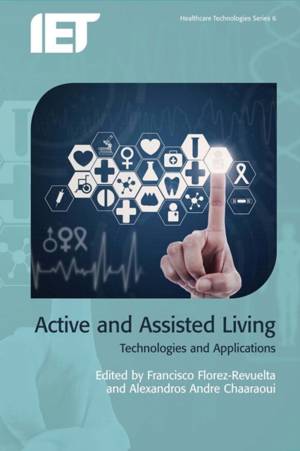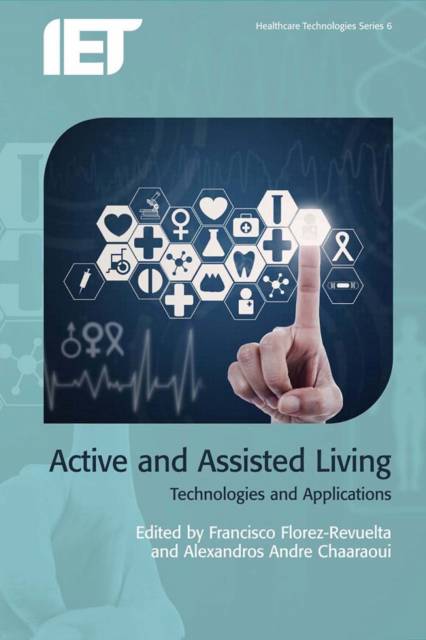
- Afhalen na 1 uur in een winkel met voorraad
- Gratis thuislevering in België vanaf € 30
- Ruim aanbod met 7 miljoen producten
- Afhalen na 1 uur in een winkel met voorraad
- Gratis thuislevering in België vanaf € 30
- Ruim aanbod met 7 miljoen producten
Active and Assisted Living
Technologies and Applications
Omschrijving
Active and Assisted Living (AAL) systems aim at improving the quality of life and supporting independent and healthy living of older or impaired people by using a distributed network of sensors and actuators to create a ubiquitous technological layer, able to interact transparently with the users, observing and interpreting their actions and intentions, learning their preferences and adjusting the parameters of the system to improve their quality of life and work. This book provides a comprehensive review of the technologies and applications for AAL.
Topics covered include the current state of the art of smart environments and labs from an AAL point of view; ambient and wearable sensors for human health monitoring; computer vision for active and assisted living; data fusion for identifying lifestyle patterns; interoperable enhanced living environments; reasoning systems for AAL; person-environment interaction; data analytics for enabling connected health; human gait analysis for frailty detection; fall prevention and detection; supporting activities of daily living; outdoor mobility assistance; location and orientation technologies based on WiFi systems; health, wellbeing and engagement in life through AAL; tablet-based clinical decision support system for hospitalised older adults; smart, age-friendly cities and communities; privacy and ethical issues; and human-centred design. The book concludes with a case study on the design and implementation of a smart home technological platform for the delivery of AAL services.
With a wide range of chapters from international contributors, this book is essential reading for researchers and students in academics and industry developing AAL technologies, healthcare practitioners, and engineers with an interest in the field.
Specificaties
Betrokkenen
- Uitgeverij:
Inhoud
- Aantal bladzijden:
- 496
- Taal:
- Engels
- Reeks:
Eigenschappen
- Productcode (EAN):
- 9781849199872
- Verschijningsdatum:
- 10/08/2016
- Uitvoering:
- Hardcover
- Formaat:
- Genaaid
- Afmetingen:
- 163 mm x 239 mm
- Gewicht:
- 884 g

Alleen bij Standaard Boekhandel
Beoordelingen
We publiceren alleen reviews die voldoen aan de voorwaarden voor reviews. Bekijk onze voorwaarden voor reviews.










